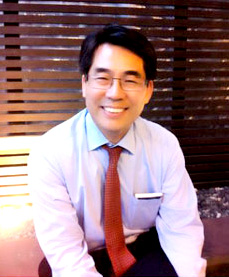
Professor KIM Chul Woo
In vitro diagnostics, a method that detects cancer and other diseases from a small blood sample, has been growing in popularity during the past few years. Led by Professor KIM Chul Woo (SNU College of Medicine), Bioinfra Inc. utilizes in vitro diagnosis to identify certain proteins in order to find correlations with specific diseases.
Although there are several health care corporations that research in vitro diagnostics, only Bioinfra has been able to diagnose multiple cancers using a single test by analyzing multiple biomarkers, or proteins. Its Smart Cancer Screening Test demonstrated high accuracy in detecting six major cancer types (lung, liver, colon, stomach, prostate and breast cancer) from just 5ml of blood. Techniques used by other health care corporations only test one type of cancer from single biomarkers.
Professor Kim's technique of diagnosing many types of cancer at once from multiple proteins represents a significant advance in cancer diagnosis. He explained that while the Western medical academia regards different cancers as distinct types of diseases, the East's holistic approach tends to put more emphasis on the fact that lung cancer, liver cancer and other types are all"cancers." The accuracy of Bioinfra's Smart Cancer Screening Test is approximately 90%, much higher than the 50-60% accuracy of the traditional single biomarker blood test.
It was only recently, however, that Bioinfra began earning recognition. Professor Kim did not have much experience in business management when he and a group of colleagues founded the company in 2001 with only five researchers. The company struggled, and within two years, most of his colleagues had left, resuming their more stable university positions. Professor Kim understood why his colleagues would want to seek more lucrative positions, saying,"Not all good ideas can earn you money."
Fortunately, others who had conviction in Bioinfra's technology remained despite the corporation's initial financial difficulties. The research team developed its diagnostics method by analyzing and comparing proteins of cancer patients with those of non-patients, thereby distinguishing the kinds of proteins affected by cancer cells. Ultimately the team selected 19 particular proteins with which to diagnose the six major types of cancer. Bioinfra was further able to raise the accuracy of their screening method with the help of Professor KIM Yongdai (Department of Statistics), who reinforced the existing algorithm of analysis.
The technical strength and high accuracy of the Smart Cancer Screening Test has enabled Bioinfra to garner much interest. In 2012, the Screening Test was certified by the Ministry of Health & Welfare, and in 2015, Bioinfra received a total of 18 billion won (equivalent to 15 million USD) of funding from government organizations, corporations and individuals. So far, Bioinfra has registered 20 patents in Korea and the US, as well as publishing more than 200 SCI (Science Citation Index) research papers.
"The current electronic image devices can only identify tumor cells that are at least 1cm in size. We will strive to diagnose cancer more quickly by combining our screening method with a new technology that extracts tumor cells circulating in the blood," Professor Kim said.
Written by YOON Jiwon, SNU English Editor, jiwonyoon@snu.ac.kr
Reviewed by Professor Travis Smith, Department of Asian Languages and Civilizations, tlsmith@snu.ac.kr

